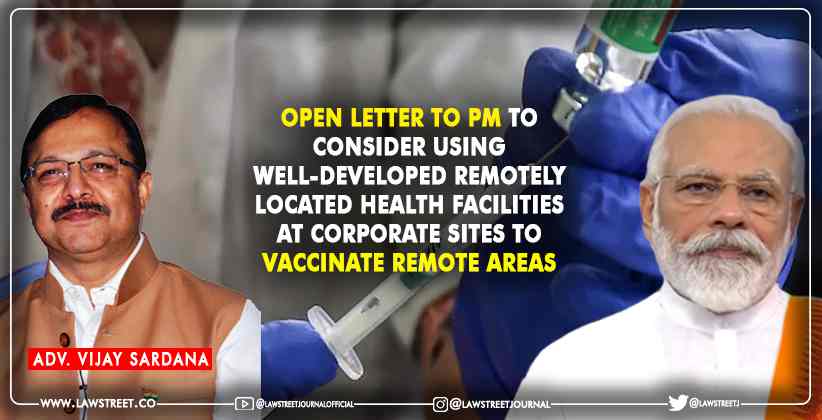Techno-legal expert and Advocate Vijay Sardana today (10/05/2021) wrote an open letter to the Prime Minister, Chief Ministers of all States/Union Territories and Health Ministers of all States/Union Territories pointing out the concern associated with the rising number of Covid-19 infections in rural India and the need for urgent action.
It is reported that in the more furious second wave of the Covid-19 infections the cases have increased 300 per cent of the previous wave and almost 50 per cent of these cases are reported from rural India. The high rural-urban divide in the availability of healthcare facilities coupled with the already stretched rural health infrastructure as a result of the pandemic paints a worrying picture.
The expert in his letter reiterates these concerns by stating that:
A large number of Covid cases are appearing in remote Indian villages. Our health system is already stretched and we do not have proper medical facilities to handle vaccination for all remote villages across the country.
Recent research by the State Bank of India pointed out that vaccination is the primary tool to achieve herd immunity and to stop the spread of infection in rural India.
The letter suggests the use of Corporate Social Responsibility capabilities of corporates as a possible cost-effective method of vaccinating/helping rural India cope with the pandemic.
The expert claims that after discussion with various industrialists, it is possible to come up with a workable model for vaccination in remote areas.
It is stated that a large number of reputed companies have their establishments located in rural India in the form of mines, power plants, processing units etc. Each of these locations has well-maintained healthcare facilities which can play a crucial role in providing rural vaccination.
The letter suggests that the government should allow such facilities to provide vaccinations and they should also be included in Aarogya Satu App or similar dashboards for seamless integration and monitoring.
The government is asked to call for expression of interest from companies which can include GPS mapping of the companies' rural establishments and the rural populations they will be able to cater to. If this is done the government can plan effectively for the remaining villages.
The management and monitoring of the vaccination drive will be done effectively and earnestly by the companies as their staff and communities will be the benefactors.
As a note of caution, the author warned that there should not be overburdening of the corporates or an inspector raj on the companies.
The author further pointed out that if such strong industry-government partnerships are made it will help tackle even the predicted third wave of the pandemic.






